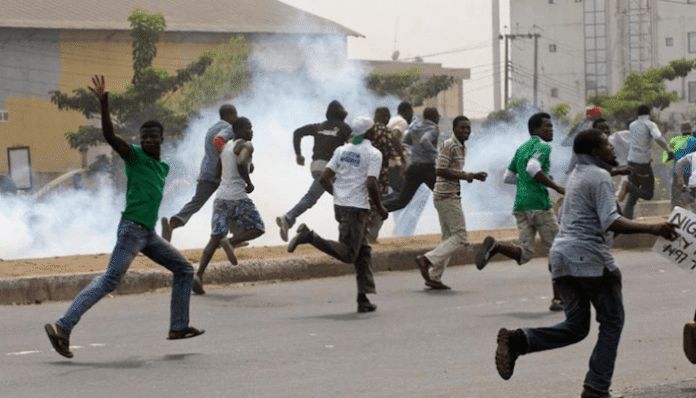The Nigeria Youth Forum (NYF) has raised alarms over the country’s worsening security situation, revealing that 3,610 people have been killed by bandits and insurgents from January to March 2025. The forum calls on the Federal Government to take decisive action to prevent the nation from descending into chaos.
Comrade Toriah Olajide Felani, National President of the NYF, expressed grave concern about the ongoing violence in states like Benue, Zamfara, Katsina, Borno, and Plateau, as well as the rise of terror-linked groups in Kwara. According to the group, these killings are part of a coordinated assault on Nigeria’s stability. They also criticized the National Assembly’s proposed security summit, deeming it an ineffective solution. Felani argued that meaningful action, such as the dismissal of high-ranking security officers, would have sent a stronger message to those responsible for the violence.
The NYF highlighted recent reports from BBC Hausa, showing that Niger State had the highest death toll with 631 lives lost, followed by Zamfara (585) and Borno (514). Other states like Katsina, Kaduna, Sokoto, and Kebbi have also been severely affected. The National Bureau of Statistics (NBS) reported that over 614,000 Nigerians were killed in the past year, with 2.2 million abducted. Data from the Armed Conflict Location & Event Data Project (ACLED) revealed that from May 2023 to May 2024, 4,556 people were killed and 7,086 abducted, with the North-West and North-Central regions being the hardest hit.
The NYF condemned the lack of effective leadership, pointing out that while Nigeria faces daily violence, political leaders issue only recycled press statements and condolences. In the National Assembly, Hon. Ahmadu Jaha raised concerns over the resurgence of Boko Haram and ISWAP, revealing that insurgents now possess advanced weaponized drones that surpass the Nigerian military’s capabilities.
The NYF further warned that the conflict has expanded to new territories, with recent attacks in Edo, Plateau, and Kaduna signifying a broader warfront. The group attributes the violence to foreign mercenaries and well-equipped bandit networks that have infiltrated Nigeria’s porous borders. Felani emphasized that these attacks are strategic, with external actors such as Tuareg fighters and Berber militias involved.
The NYF urged immediate reforms to the country’s security infrastructure, increased funding, and the deployment of advanced military technologies. Without urgent action, the group warned, Nigeria could face economic collapse, with markets shutting down, banks closing, and militias manning checkpoints across the country. The NYF also recommended increasing investment in the agricultural sector to combat unemployment and reduce insecurity, pointing to the vast amount of underutilized arable land in the country.
In its statement, the NYF stressed that the ongoing crisis is not a tribal conflict but a national security threat stemming from state failure. Drawing a parallel with Rwanda’s tragic history, the group warned that no one would be safe if the country’s systems continue to collapse.

